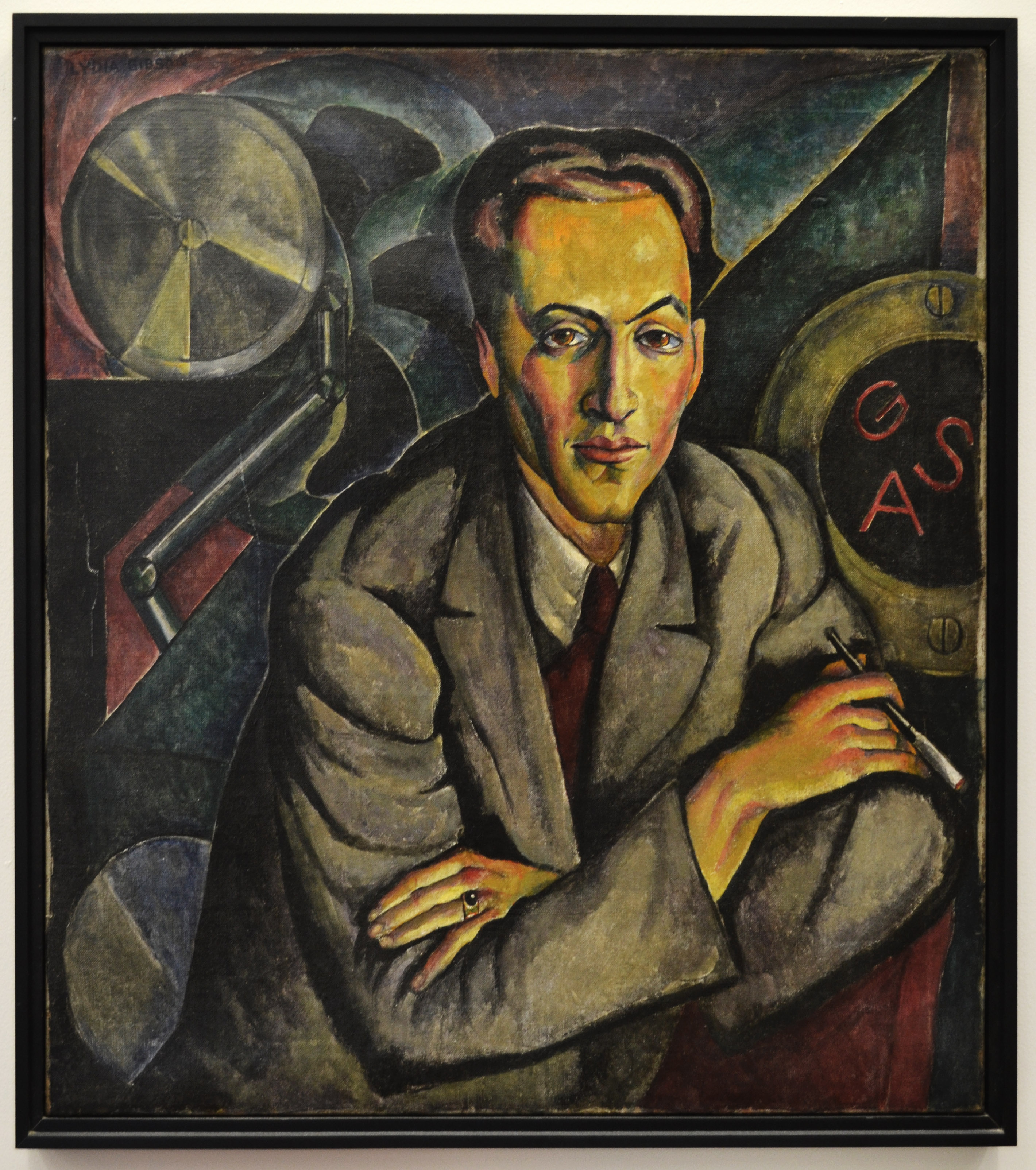Symbolic portrait of Sacco and Vanzetti.
Caption on verso reads: "Remember. . . we are not criminals; they convicted us on a frame-up; they denied us on a frame-up; they denied us a new trial; and if we will be executed after seven years [in prison] . . . of unspeakable torture. . . it is. . . because we are for the poor and against the exploitations and oppression of the man by the man.
"So wrote Bartolomeo Vanzetti before he and Nicolo Sacco were electrocuted on August 22, 1927 for an alleged murder in a payroll holdup in South Braintree, Massachusetts.
"Sacco and Vanzetti, staunch unionists and political activists, had worked closely with Luigi Galleani, editor of an anarchist Italian language paper. Galleani was deported in the infamous 'Palmer raids' of the early 1920s.
"In the then prevailing atmosphere of 'red hysteria' the trial of Sacco and Vanzetti became highly politicized. For after World War I a wave of ultra-loyalty and reactionary nationalism swept the country. It led to a weeding out of foreign-born 'agitators'. This anti-foreign prejudice had its roots in the influx of cheap labor from Europe at the turn of the century. Among these new immigrants were some who advocated socialism, anarchism, or industrial unionism. The successful Russian Bolshevik revolution added fuel to the fear of 'red aggression'. Aliens became identified with radicalism and all radicals were looked upon as bomb-throwing Bolsheviks.
"The testimony of witnesses in support of Sacco and Vanzetti's claim they were nowhere near the scene of the holdup was discounted by the court because 'it came from Italians'.
"In 1925 Celestino Madeiros confessed to the holdup, stating that Sacco and Vanzetti were not involved. Judge Webster Thayer, however, refused to grant a new trial and the state took no action against Madeiros, a known criminal.
"Addressing the jury Judge Thayer said, 'This man [Vanzetti] although he may not have actually committed the crime attributed to him, Is nevertheless morally culpable because he is the enemy of our existing institutions. . . [his] ideals are cognate with crime.'
"Felix Frankfurter, later a U.S. Supreme Court Justice, wrote 'Judge Thayer's opinion stands unmatched for discrepancies. . . His 25,000 word document cannot be accurately described otherwise than a farrago of misquotations, misrepresentations, suppressions, and mutilation.'
"This willful distortion of truth sent two innocent men to their death.


